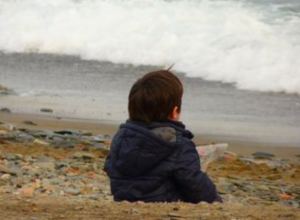The coronavirus pandemic appears to have placed more pressure on children and families – as well as on the professionals responsible for child protection and safeguarding.
But “far-reaching” covid restrictions made it harder for professionals working in Brighton and Hove to help children by carrying out their usual face-to-face duties, according to a new report.
The number of “initial contacts” from families went up from 16,181 in 2019-20 to 16,732 in 2020-21. But the number of “referrals” to children’s social care fell from 3,049 to 2,719.
And the number of “assessments” completed fell from 2,747 to 2,146 although it was not clear from the report whether the drop in numbers reflected a reduction in need.
At first glance, there were more than 1,000 instances of missing children, with concerns that some were exploited or trafficked.
But the figures were among a number of figures elements of the report that appeared to have been were copied unchanged from a previous report.
Not for the first time, councillors raised concerns that demand was growing for CAMHS – Child and Adolescent Mental Health Services – but children faced long waiting times for assessment and treatment.
In some cases, children’s mental health worsened as they went unseen or untreated.
The report said: “It was noted that the numbers of young people presenting to A&E with issues relating to mental health has dramatically increased.”
And three of the leading figures in children’s safeguarding in Brighton and Hove said in their foreword to the report: “The far-reaching restrictions imposed and in some instances the loss of loved ones as a direct result of the pandemic will inevitably have longer-term repercussions for our children, young people and their families.
“We are beginning to understand the implications of a global pandemic on our communities.
“Mental health and wellbeing, disrupted education and restricted mobility as well as the impact of hidden harms such as domestic abuse and criminal exploitation evince emerging pictures of acute need and concern.
“In Brighton and Hove we rapidly adapted our practice methods to provide targeted support for families and children most in need of help and protection.
“Brighton and Hove City Council co-ordinated multi-agency and organisational networks to focus on meeting immediate and intermediate needs.

“Our ‘new normal’ involved strengthening existing links and sharing real-time operational updates to make sure that we focused on our most vulnerable families, particularly during initial covid-19 ‘lockdown’ measures.
“Our frontline staff worked with tremendous resilience and selflessness as did our remarkable community and voluntary sector organisations.
“We are very grateful and proud for all they achieved when working in the most challenging and at times frightening circumstances.
“While we have seen benefits of online engagement, overall it is a mixed picture in terms of social isolation and understanding of the families we want to engage with, set against travel efficiencies and greener ways of working.
“Moving our core business delivery work to virtual platforms has afforded us an opportunity to look at future ways of working together efficiently and effectively.
“However, in terms of frontline practice this should not be a substitute for face-to-face work with families who need our help.”
The report was discussed by the council’s Health and Wellbeing Board at Hove Town Hall yesterday (Tuesday 8 March).

It was introduced by Chris Robson, the independent scrutineer and chair of the Brighton and Hove Safeguarding Children Partnership.
Mr Robson praised the input from children and young people themselves as he spoke about the partnership’s 2020-21 annual report.
Labour councillor John Allcock said: “Partnership working, as presented in this report, is absolutely vital to work across what would otherwise be public sector silos.”
He said that this had been driven by cases such as the Victoria Climbie tragedy and the Baby P tragedy in London.
Councillor Allcock also said that he recognised the challenges posed by the coronavirus, adding: “I’m assured that, on the ground, work is being progressed as effectively as Chris described which is absolutely critical.”
He made some criticisms of the annual report, saying: “It’s not particularly coherent in terms of where things have got to … and where things are going.
“It’s quite a late report. A lot of time has passed (since the end of the operational year – to the end of last March).
“I’m particularly keen that objectives are put into some sort of clear project plan that’s aligned with performance figures and outcomes … so that we can see – in our role as board members and as elected members who have a role in scrutinising what’s going on – where things are, where the challenges are, what’s going to be done about the challenges, when those things are going to be done and how it’s going to be done and what we can expect to see in terms of outcomes when we see the next report.
“That would give me confidence as somebody who’s sitting on the board … I don’t particularly see that in this report, I’m afraid, although I think that could be drawn out.
“There are lots of positive things. I’ve got every confidence in the service and the way that partners are working together. And I think that’s fantastic.
“To give us more confidence, moving forward, it would be helpful to see a slightly different layout, at least in the next report, identifying some of the challenges that Chris outlined, that are within the report, in a clearer format with clearer outcomes and objectives so that we can review and help with that process moving forward.”
Mr Robson said that the next report would be more outcome-focused but that it hadn’t been intended to be a business plan. It was, he said, “a read for our public as well, for the people of Brighton and Hove”.
He added: “I’ll certainly take your feedback on board.”
Hangleton and Knoll Project chief executive Jo Martindale asked about the absence of detail about child deaths which have been included in previous safeguarding annual reports.
Although she did not mention any individual cases, the unacknowledged deaths in the 2020-21 operating year included Walter German who died at nine days old in Brighton in January last year.
The Health and Wellbeing Board noted the Brighton and Hove Safeguarding Children Partnership Annual Report 2020-21.








